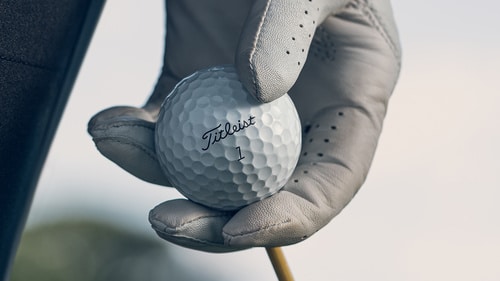David Maher, president of Titleist and FootJoy parent Acushnet Co., today told Wall Street analysts that the company has not yet passed along increased tariff costs to consumers, but does anticipate “taking some regional pricing action on select products as we gain clarity on the extent and timing of our mitigation efforts.’’
The Acushnet Co., today reported Q1 sales of $703.4 million, down 0.6% year over year. First quarter earnings were $99.4 million, up 13.2% year over year.
Golf balls sales in Q1 increased five percent versus Q1 of 2024 to $213 million, while Q1 club sales increased four percent to $208 million. Footoy’s Q1 sales fell 13 percent to $178 million.
The company’s stock price today closed up five percent to $68.38.
Maher said Acushnet’s supply chain is “durable and regionally diverse,’’ which provides its teams a good amount of operational flexibility to adapt to an uncertain and evolving tariff dynamic.
“Our vertical integration in golf balls, golf clubs, footwear and golf gloves, first and foremost, supports our efforts to achieve the highest quality standards in the products we produce,’’ Maher said. “It also provides a good amount of control and agility as it relates to demand planning and global supply chain management.’’
Approximately two-thirds of Acushnet’s worldwide golf ball output is produced in the United States at its two Massachusetts-based ball plants that supply the majority of its U.S. golf ball demand.
A Thailand plant supplies Titleist Pro V1 models to all other regions, now including Canada.
“Our golf ball business has a small exposure to tariffs from China sourced raw materials, which we expect to mitigate by the end of the year,’’ Maher said. “Additionally, we ship U.S. produced performance model golf balls into Canada and Mexico, which are presently incurring a 25% tariff. We have not yet reacted to this temporary rate. However, if this becomes permanent we will likely take pricing measures.’’
Acushnet’s club components are sourced from China, Taiwan, Vietnam and the U.S..
“We operate our own assembly centers in most major regions,’’ Maher said. “All of our U.S. club demand is assembled in our Carlsbad, CA., facility.
“Our primary golf club tariff exposure today is from China sourced club heads shipped into the U.S.. Over time we will reroute these heads to our international facilities and supply our U.S. production center with components sourced from the US, Taiwan and Vietnam.
“We recently relocated our footwear manufacturing center from China to Vietnam. While we are confident this move has a long-term benefit, FootJoy like most footwear companies, is exposed to tariff uncertainty in Vietnam, which was originally posted at 46 percent, but is now at 10 percent during the current pause period.’’
The Acushnet Co., owns and operates a standalone glove facility in Thailand, which produces FootJoy and Titleist gloves.
“We are confident that Acushnet’s supply chain footprint provides us with flexibility to adapt, most notably within golf equipment, our largest segment,’’ Maher said. “We expect to mitigate a good portion of the current tariff impact by end of year and expect to realize further relief in 2026 from some of our actions that will take longer to materialize.’’
Photo Courtesy of the Acushnet Company

